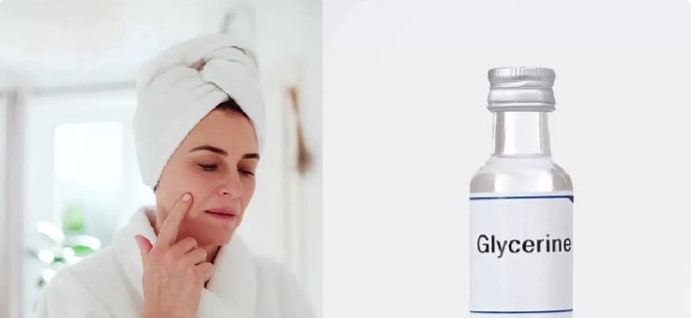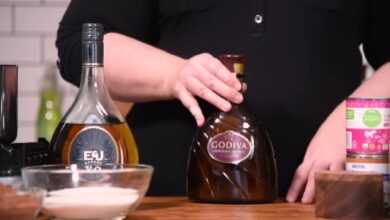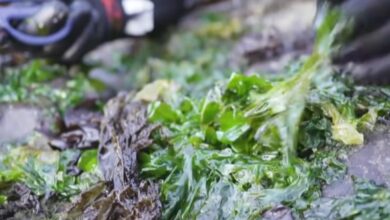Is Glycerin Halal
In today’s diverse and globalized world, understanding the nuances of halal certification and ingredient sourcing is crucial for many consumers, especially for those adhering to Islamic dietary laws. One such ingredient that often raises questions is glycerin. Found in a myriad of products ranging from food and beverages to cosmetics and pharmaceuticals, glycerin’s halal status is not straightforward. This article delves into the complexities of glycerin, its sources, and its halal certification to provide clarity for Muslim consumers.
What is Glycerin?
Glycerin, also known as glycerol, is a simple polyol compound. It is a colorless, odorless, viscous liquid that is sweet-tasting and non-toxic. Glycerin is widely used in the food industry as a sweetener and humectant, in pharmaceuticals as a solvent, and in cosmetics as a moisturizer.
Common Uses of Glycerin:
- Food Industry: As a sweetener and preservative in baked goods, candies, dairy products, sauces, and fruit drinks.
- Pharmaceuticals: As a solvent and lubricant in syrups, elixirs, and expectorants.
- Cosmetics: In lotions, soaps, toothpaste, makeup, and lip care products.

Sources of Glycerin
The halal status of glycerin depends largely on its source. Glycerin can be derived from:
- Vegetable Oils: Such as palm oil or soybean oil. This type of glycerin is typically considered halal as it comes from plant sources.
- Animal Fats: This source can be problematic, especially if the animal is not slaughtered according to Islamic rites, or if the source is non-halal (e.g., pork).
- Synthetic Processes: Glycerin can also be synthesized through chemical processes, which can be halal if no haram (forbidden) substances are involved.
Halal Status by Source:
| Source | Halal Status |
|---|---|
| Plant-based | Generally Halal |
| Animal-based | Depends on the slaughter method |
| Synthetic | Generally Halal, if uncontaminated |
Halal Certification for Glycerin
Halal certification involves rigorous scrutiny of the entire production process, from sourcing to manufacturing. Certifying bodies such as the Islamic Food and Nutrition Council of America (IFANCA) and the Halal Monitoring Authority (HMA) are well-known for their stringent standards.
Steps in Halal Certification:
- Source Inspection: Verifying that the raw materials are from halal sources.
- Manufacturing Process Examination: Ensuring no contamination with haram substances occurs.
- Hygiene and Cleanliness Verification: Maintaining cleanliness throughout the production process.
- Final Certification: Confirming the product complies with Islamic dietary laws.
Schools of Thought on Glycerin
Different Islamic schools of thought may have varying interpretations regarding the permissibility of glycerin:
- Hanafi: Permits glycerin unless it is known to come from a haram source.
- Maliki: Prohibits glycerin unless it is known to come from a halal source.
- Shafi’i: Generally permits glycerin, viewing it as intrinsically pure.
Practical Tips for Muslim Consumers
Identifying Halal Glycerin in Products:
- Look for Halal Certification: Products with recognized halal certification ensure compliance with dietary laws.
- Check Ingredient Lists: Ingredients labeled as “vegetable glycerin” are usually plant-based and halal.
- Contact Manufacturers: If the source of glycerin is unclear, contacting the manufacturer can provide clarity.
- Use Halal Consumer Resources: Online resources and mobile apps can help identify halal-certified products.
Alternatives to Glycerin:
For those concerned about glycerin’s halal status, alternative humectants and sweeteners include:
- Sorbitol
- Xylitol
- Propylene Glycol
Frequently Asked Questions
What is Halal?
Halal refers to anything permissible or lawful in Islam. It encompasses a wide range of practices, from dietary laws to ethical business practices, all adhering to Islamic guidelines.
What is Glycerin?
Glycerin, also known as glycerol, is a colorless, odorless liquid that is sweet-tasting and non-toxic. It is widely used in food, cosmetics, and pharmaceuticals as a humectant, sweetener, and solvent.
Is Glycerin Halal?
Glycerin can be halal or haram depending on its source. If derived from vegetable oils, it is halal. However, if it is sourced from animal fats, it may be haram unless the animal was slaughtered according to Islamic law.
How Can I Determine if Glycerin is Halal?
To determine if glycerin is halal, check the product label for its source. If it is plant-based, it is halal. If it is animal-based, verify if it comes from an animal slaughtered in accordance with Islamic principles.
Is Glycerin in Cosmetics Halal?
Glycerin in cosmetics is halal if it is derived from plant sources. Always check product labels and seek halal certification for assurance.
Is Glycerin in Food Halal?
Glycerin in food is halal if it comes from vegetable oils. Be cautious with food products and verify the source of glycerin or look for halal certification.
Can Glycerin be Used in Medications?
Glycerin in medications can be used if it is plant-derived. For critical medical needs, some flexibility is allowed in Islam, but always seek advice from a knowledgeable authority.
Is Glycerin in Toothpaste Halal?
Most toothpaste brands use plant-derived glycerin, making them halal. However, it is best to check the product label to confirm its source.
Is Synthetic Glycerin Halal?
Synthetic glycerin, which is chemically produced, is generally considered halal as it does not involve animal products.
Where Can I Buy Halal Glycerin?
Halal glycerin can be purchased from stores specializing in halal products, online retailers, and certain pharmacies that provide halal-certified products.
What Are Some Common Uses of Glycerin?
Glycerin is used in various products such as food (as a sweetener), cosmetics (as a moisturizer), pharmaceuticals (as a solvent), and in personal care items like toothpaste and soaps.
Does Glycerin Taste Different Depending on its Source?
Glycerin generally has a sweet taste regardless of its source. However, its purity and method of extraction can slightly influence its taste.
Is Animal-Derived Glycerin Always Haram?
Animal-derived glycerin is not always haram. If the animal was slaughtered according to Islamic law, it can be halal. Verify the source and halal certification.
Can Glycerin be Part of a Halal Diet?
Yes, glycerin can be part of a halal diet if it is derived from halal sources such as plants or animals slaughtered according to Islamic guidelines.
Is Glycerin Halal in Soaps and Skincare Products?
Glycerin in soaps and skincare products is halal if it is plant-derived. Check product labels or look for halal certification to ensure compliance with Islamic laws.
What Should Muslims Consider When Buying Products Containing Glycerin?
Muslims should check the source of glycerin, look for halal certification, and seek products from reputable brands that prioritize halal compliance.
Conclusion
Determining whether glycerin is halal requires understanding its source and production process. While plant-based and synthetic glycerin are generally halal, animal-derived glycerin can be contentious, depending on specific Islamic guidelines. By seeking products with clear halal certification and understanding the sources of ingredients, Muslim consumers can make informed choices aligned with their dietary and religious beliefs.
Read also: Luna Bar Nutrition Facts





